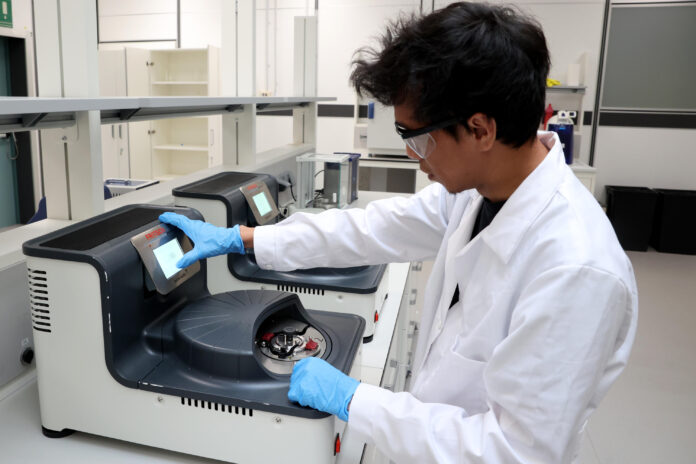[ad_1]
Ferrari recently opened and sponsored the E-Cells Lab, the new electrochemical research center at the University of Bologna (Italy). This initiative, scientifically directed by the university, aims to deepen the understanding of materials and the chemical and physical properties of lithium cells.
It is a significant contribution to electrochemical research, thanks to the collaboration with the university in designing a space equipped with state-of-the-art instrumentation to conduct advanced analyses. The Maranello-based company is supporting the lab through knowledge exchange with the university, recognizing the strategic value of the project for the area and particularly for the automotive sector.
The E-Cells Lab is divided into two areas: The first is dedicated to preparing electrochemical materials, while the second focuses on analyzing, testing and characterizing these materials. Special attention will be paid to solid state, fast charging, thermal propagation, safety and cell performance.
Ferrari said in an interview with Power Electronics News that the laboratory has a scientific research purpose in electrochemistry. The goal is to deepen the characteristics and operation of lithium cells, enhance collaboration with suppliers and gain a complete understanding of battery performance. The collaboration is also meant to demonstrate that Ferrari has never just assembled components but has always wanted to thoroughly explore the production process of the entire supply chain.
Laboratory testing
Catia Arbizzani, full professor of the Department of Chemistry “Giacomo Ciamician” at the University of Bologna, noted that the characterization of electrochemical materials in the laboratory involves different methodologies to evaluate their performance, stability and behavior during the charge and discharge cycle. Conventional electrochemical tests, such as charge and discharge cycles, are critical. In these tests, the material or cell is exposed to repeated cycling at a given current density to assess its stability over time. The ability to operate at different charge and discharge currents is examined to understand “rate capability,” or the ability to handle high currents without compromising performance.
Another crucial technique is impedance spectroscopy, which analyzes the resistive and capacitive components of the system, Arbizzani said. This method provides detailed information on the material’s electrical behavior over time, particularly concerning aging, enabling the identification of critical changes in performance.

Thermal characterizations are essential to understanding the thermal stability of materials and detecting any decomposition phenomena during operation. These analyses can reveal critical temperatures beyond which the material may degrade, thus limiting its useful life.
Spectroscopic analyses are equally important for detecting changes in the structure and composition of the material, as its morphology can greatly influence electrochemical performance.
Market
The strategic partnership with NXP and other companies promises to further push the E-Cells Lab to the forefront of lithium cell research. NXP’s contribution to the project, both financially and technologically, will be critical to the development of electronics dedicated to battery monitoring. In addition, the lab is open to new collaborations with equally innovative partners, thus expanding the shared knowledge and expertise base. Ferrari will use the results to improve communication with cell suppliers and optimize the performance of the batteries used in the Maranello plants.
Ferrari outlines an ambitious framework for the E-Cells Lab, aiming for a better understanding of lithium batteries and their performance mechanisms. This research focuses on critical aspects like solid state, fast charging, thermal propagation and safety. Despite the lab’s primarily scientific focus, the discoveries and analyses could significantly impact the future of EV batteries, directly affecting safety standards and industry performance.
[ad_2]
Source link





